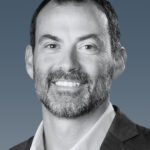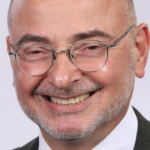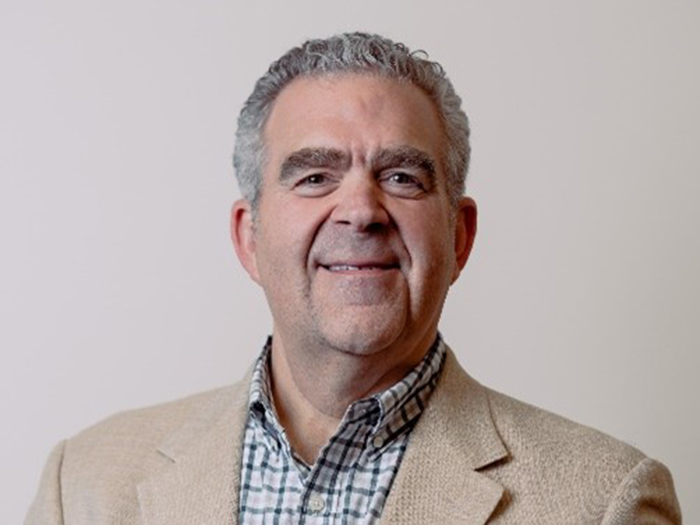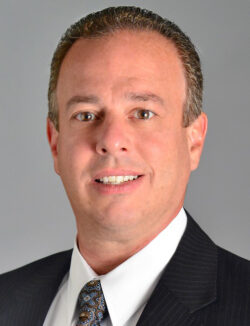Empowering Women in Medicine: Ronda McCarthy, Lisa Figueroa and Latha Brubaker on Leadership and Innovation

In June, Risk & Insurance caught up with three members of the Concentra executive team. Ronda McCarthy, MD, MPH, FACOEM, national medical director, medical surveillance services; Lisa M. Figueroa, MD, vice president, national medical director, health information technology and telemedicine; and Latha Brubaker, MD, senior vice president medical operations were all part of the discussion.
The topic of the conversation was the leadership roles taken by women in workers’ compensation and health care in general. What follows is a transcript of that discussion, edited for length and clarity.
Risk & Insurance: What pivotal moment in your career journey empowered you to pursue leadership in medicine, and how do you hope to inspire other women in the field through your experiences?
Ronda McCarthy: I became extremely interested in the toxic and hazardous exposures that millions of employees face in their work environments every day. I trained to understand how to prevent the health effects from these workplace hazards and learned about employers’ legal responsibilities for a safe and healthy workplace, as well as the medical evaluations that should occur in case of an injury or illness at the worksite.
I realized there were gaps in the occupational medical care of these workers. Initially, I thought someone else was managing the inconsistencies I witnessed in occupational health care and worker health and safety regulations. Then I realized that I could bring attention to these gaps in medical care and regulatory compliance and work to fix them.
I took this work on for the health and safety of others, not for the purpose of being a leader. I understand now to trust my instincts and not assume that others are responsible for fixing problems. There are many areas to specialize in within occupational medicine, and as work and the environment changes, so will this profession. It is a fascinating area where women physician leaders can make a difference.
Lisa M. Figueroa: As an emergency physician, I was always surrounded by “organized chaos,” where patients’ lives would be in jeopardy without a leader. I wanted to be that leader. When I began my residency 33 years ago, there were very few women leaders, but that did not discourage me. It made me want it even more.
I realized early in my career that in addition to caring for patients, I wanted opportunities where skillful leadership was paramount. After my residency training, I pursued a fellowship in emergency department administration, knowing that wherever my career took me, I wanted to be a leader.
Latha Brubaker: I have always had a natural interest in leadership, but my pursuit of leadership positions has been driven by key people in my life who have believed in me and encouraged me. This began with my parents, who often told me I was capable of leading, gave sound advice, and were my greatest cheerleaders.
In medicine, I have had wonderful leaders and role models who have also encouraged me to pursue leadership roles. The successful results I have achieved and seeing some of the clinicians that I have been able to lead become leaders themselves continues to drive my interest in leadership.
R&I: What initially attracted you to occupational medicine, and how does your perspective as a woman influence your approach to this field?
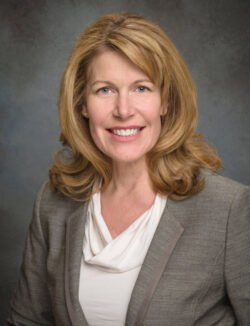
Ronda McCarthy, MD, MPH, FACOEM, national medical director, medical surveillance services, Concentra
RM: I took a plant tour of a worksite with a mentor when I first started working in occupational and environmental medicine (OEM). As we walked through the worksite, he explained how it was a “hot, dirty, dangerous” place to work. People chose to make a career there because of the pay to offset the challenging work conditions.
This place later became like a small family practice to me. I took care of this population and many others at their worksites. It appealed to me because I was able to see individuals who may never see a physician otherwise, for various reasons, except that it was a requirement of their work. As a woman OEM physician, most of the patients in my area of focus are men, possibly because men tend to work in more toxic and hazardous environments.
LF: My occupational medicine career began at Concentra as a center medical director. Initially, it was not occupational medicine that drew me to this position but the opportunity to be in a position of leadership. However, it was not long before I gained great satisfaction in helping people stay productive at work. And I loved being a leader.
I quickly realized that if you made the work environment fun, efficient and rewarding, colleagues were happy and did great work! With all the support and encouragement from my peers and leaders, I was able to advance to higher levels of leadership within the organization. It is my passion for work, great people who encouraged and supported me, and a propensity towards leading people that allowed me to grow as a leader.
LB: I am a board-certified family physician. When my family had to move to another state, I was suddenly in a situation where I was moving away from my extended family network for childcare. I had options for childcare, but the family medicine positions would require more time away from my young family when factoring in commute, after-hours paperwork and calls.
I stumbled upon occupational medicine during my new job search. I was presented with an opportunity for better work-life balance and future leadership opportunities. I also came to realize that I was still taking care of families by helping workers stay healthy and able to provide for their families. This has been incredibly rewarding. Occupational medicine has a huge impact on the American workforce.
R&I: How do you manage to maintain a healthy work-life balance as a female physician, and what strategies have you found most effective in navigating the demands of your professional and personal responsibilities?
RM: The work will never be done. You realize you need to decide when your stop time is for the day and know you can pick it back up again tomorrow. There will be periods of time for leaders when work will be more demanding and time-consuming than others.
I personally try to have at least one day a week where I do not work or think about work. Rest is an important part of excelling in work or anything else. I am fortunate that I found OEM medicine as a career; it is one of the best for work-life balance. I tell many young women in medical training that it is the best specialty for “moms” or balancing future family life.
LF: In choosing emergency medicine, I knew I loved the fast pace and the diversity of the care, but I also had defined work shifts and the remainder of the time was my own. The same applies to occupational medicine. You work hard to get patients healthy and back to work and life, but you also have ample time for what makes you happy personally.
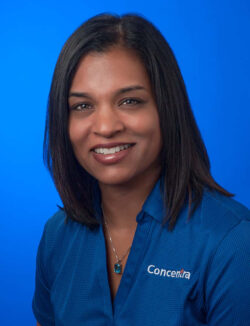
Latha Brubaker, MD, Senior Vice President Medical Operations, Concentra
LB: Having the support of my family! I have three daughters. My husband has been a fantastic father to his girls and incredibly supportive of my career while also pursuing his advanced degrees and career. It takes some coordination, but being able to give my all to my family as well as my career has been possible.
I work for an organization that is supportive and encourages putting family first while also setting reasonable expectations for company results and quality medical outcomes. My youngest daughter graduated yesterday from high school. All three of my girls are pursuing higher education and are making the most of all that comes their way. They are happy. I would say that’s evidence of having balanced things fairly well.
R&I: Reflecting on your journey, what aspects of working in occupational medicine do you find most rewarding?
RM: Knowing that I am contributing to improved health and safety of the U.S. workforce. I also find passing on what I have learned over the years to clinicians newer to OEM rewarding. You can read about how to handle difficult clinical scenarios, but nothing compares to having the actual years of experience managing cases, especially the complex ones.
LF: In occupational medicine, you make a difference in people’s lives. You keep them healthy and able to work to support themselves and their families. This is extremely rewarding. In emergency medicine, you save people’s lives in an acute setting. In occupational medicine, you “save” their lives by keeping them working and productive, thereby contributing to their overall well-being.
LB: Occupational medicine has many facets, from taking care of the injured worker to completing a physical examination on a patient who is pursuing a career in a regulated industry. Occupational medicine is always interesting and encourages a constant learning environment, which I love and find personally rewarding.
At Concentra, there has also been the opportunity to be a physician leader. There is great collaboration with our operations leaders, sales and physical therapy. This team approach to ensuring a patient is well taken care of contributes to the quality of medicine we can provide for a patient. To me, this is a huge win, especially for the patient.
R&I: As a trailblazer in the field of occupational medicine, what advice would you offer to aspiring female clinicians who wish to follow in your footsteps and contribute to the advancement of women in medicine?
RM: Find mentors who model leadership and commitment to excellence in your chosen line of work. Working with role models helps you realize what can be accomplished and how to develop your own path forward. In time, become a mentor and role model yourself for persons earlier in their career.
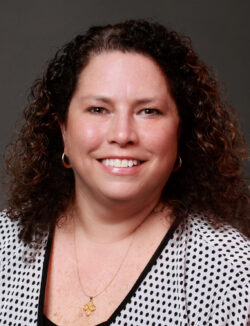
Lisa M. Figueroa, MD, vice president, national medical director, health information technology and telemedicine, Concentra
LF: Focus on your aspirations but don’t lose sight of what makes you happy personally. Work hard, inspire others and make a difference in people’s lives every day. Be proud of your accomplishments, and if you want more, opportunities are abundant.
LB: Surround yourself with people who support you and want the best for you. List your priorities in your career and personal life. The list may not be the same for everyone, but if you make choices and take action based on your priorities, you will be successful.
Find something that relaxes you, too. For me, it’s playing the violin, reading and exercising. It will help you stay healthy as you encourage your patients to be healthy! &


